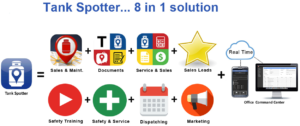A Guide to Propane Supply Agreements
Navigating propane supply agreements can be quite daunting, especially for new businesses or consumers. Understanding the key elements of these agreements can help ensure a reliable propane supply while managing costs effectively. Here’s a comprehensive guide to understanding and managing propane supply agreements. Understanding Supply Agreement Terms The first step in navigating propane supply agreements… Continue reading A Guide to Propane Supply Agreements
Navigating propane supply agreements can be quite daunting, especially for new businesses or consumers. Understanding the key elements of these agreements can help ensure a reliable propane supply while managing costs effectively. Here’s a comprehensive guide to understanding and managing propane supply agreements.
Understanding Supply Agreement Terms
The first step in navigating propane supply agreements is understanding the terms and conditions that are laid out. These agreements typically cover delivery schedules, pricing, volume commitments, and duration of the contract. Familiarizing yourself with these terms helps avoid unexpected charges and ensures that the supply terms meet your needs.
Pricing Structures
Propane pricing can vary based on several factors, including market price fluctuations, volume of purchase, and contract length. Common pricing structures include:
Fixed Price: The price per gallon is fixed throughout the contract term.
Indexed Price: Pricing is tied to a specific index (like wholesale propane prices) and fluctuates with market conditions.
Capped Price: Offers a variable rate that will not exceed a set maximum, providing some buffer against price spikes.
Understanding these structures will help you choose an agreement that aligns with your financial planning and best suits your budget.
Volume Commitments and Flexibility
Many suppliers require a minimum volume commitment. It’s important to assess your propane needs accurately in order to agree to a realistic volume that aligns with your usage patterns without leading to wasteful over-purchasing or under-purchasing penalties.
Duration of the Agreement
Long-term agreements might offer better prices due to volume commitments, but they reduce flexibility. Consider how long you want to be locked into a contract, and assess the pros and cons of short-term versus long-term agreements based on your usage stability and market price volatility.
Delivery and Service Terms
Understand the delivery schedules and whether the agreement includes services like tank maintenance and emergency deliveries. Confirm any fees associated with delivery and service calls to avoid hidden costs.
Termination Clauses and Renewal Terms
Knowing the exit terms is essential. Look for:
Termination fees
Notice periods for non-renewal
Automatic renewal clauses
These can significantly impact your ability to switch suppliers or negotiate future terms.
Safety and Compliance
Ensure the supplier meets all safety standards for propane storage and handling. Compliance with local, state, and federal regulations is crucial to avoid legal liabilities.
Negotiating Your Agreement
Armed with a clear understanding of your needs and the market, negotiate terms that offer flexibility, fair pricing, and reliable delivery. Don’t hesitate to ask for modifications to standard contracts that better suit your situation.
Supplier Reputation and Reliability
Research suppliers’ reputations through reviews and business ratings. A reliable supplier ensures not just competitive pricing but also consistent quality and service, which can save you much hassle.
Legal Review
Before signing any agreement, consider having it reviewed by a legal professional familiar with energy contracts. This can prevent future legal troubles and ensure that the agreement is mutually equitable.
Effectively managing propane supply agreements requires a good understanding of your energy needs, careful consideration of contract terms, and strategic negotiation. By taking the time to understand each component of the agreement, you can secure a cost-effective and reliable propane supply that supports your operational or personal needs.



